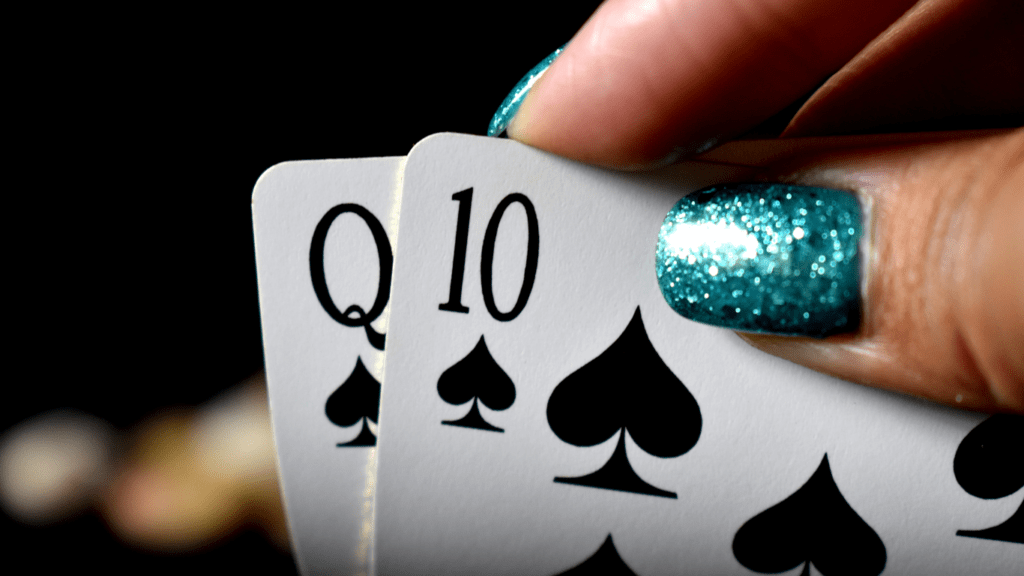If you’ve ever found yourself making irrational decisions or letting emotions take over during a poker game or sports bet, you might have experienced what’s known as “tilt.” In the world of gambling, tilt refers to a state of emotional or mental frustration that can cloud judgment and lead to poor choices.
As someone who’s delved into the realms of poker and sports betting, I understand the importance of recognizing and overcoming tilt to stay ahead in the game. In this article, I’ll guide you through the signs of tilt, whether it’s in a high-stakes poker tournament or a crucial sports wager.
By being able to identify when tilt is creeping in, you can take proactive steps to regain control and make strategic decisions. Let’s explore practical strategies and techniques to help you manage tilt effectively and enhance your performance at the poker table or in the sports betting arena.
Understanding Tilt in Poker and Sports Betting
Definition of Tilt
Tilt is a term used in gambling to describe a state of emotional or mental confusion that often leads to poor decision-making. In poker and sports betting, tilt can result from a series of losses, bad beats, or external factors that disrupt focus and rational thinking.
Common Triggers of Tilt
One of the most common triggers of tilt is experiencing a string of consecutive losses, which can create frustration and impulsive reactions. Another trigger is encountering bad beats, where a player loses despite having strong odds in their favor.
External factors like distractions, fatigue, or personal issues can also contribute to tilt by affecting concentration and emotional stability.
Identifying Tilt in Your Game
To recognize tilt in your game, pay close attention to your behavioral patterns. Observe how you react to losses, bad beats, or external factors that may disrupt your focus and rational thinking. Look out for signs of frustration, impulsive actions, or lack of concentration, as these could indicate you are on tilt.
Recognizing Behavioral Patterns
When trying to identify tilt in your game, watch for behavioral patterns such as:
- Emotional Responses: Are you feeling more frustrated, angry, or upset than usual after losses or bad beats?
- Impulsive Decisions: Do you catch yourself making quick decisions without thoroughly considering the consequences?
- Lack of Focus: Are you finding it hard to concentrate on the game or easily distracted by external factors?
By recognizing these behavioral patterns, you can proactively address tilt and take steps to regain control of your emotions and decision-making processes.
Consequences of Tilt in Gaming
Understanding the consequences of tilt in gaming is crucial for enhancing performance in both poker and sports betting. When players experience tilt, it can have detrimental effects on their decision-making abilities and overall gameplay. Here are some of the key repercussions of tilt in gaming:
- Impaired Decision-Making: Tilt can lead to impaired decision-making skills, causing players to make suboptimal choices based on emotions rather than logic. This can result in reckless betting, chasing losses, and deviating from sound strategies.
- Loss of Focus: Tilt often causes a loss of focus during gameplay, leading to missed opportunities, overlooking key information, and being less attentive to opponents’ moves. This lack of focus can significantly impact the outcome of hands or bets.
- Emotional Instability: Tilt can trigger emotional instability, resulting in heightened frustration, anger, or disappointment. Emotions can cloud judgment, leading to impulsive actions that are not based on calculated risk assessment.
- Financial Losses: One of the most significant consequences of tilt is financial losses. Poor decision-making driven by emotions can lead to substantial monetary losses in both poker and sports betting, affecting bankrolls and long-term profitability.
- Negative Psychological Impact: Tilt can have a negative psychological impact on players, causing stress, anxiety, and a sense of helplessness. Continuous exposure to tilt without effective management strategies can lead to burnout and a decline in overall mental well-being.
Recognizing these consequences of tilt is essential for players to take proactive measures to avoid or mitigate its effects. By understanding how tilt manifests and its potential impact, players can implement strategies to maintain a clear mindset, emotional balance, and rational decision-making even in challenging situations.
Strategies to Overcome Tilt
In managing tilt effectively, it’s vital to develop strategies that help maintain focus and emotional stability during poker games or sports betting. Here are practical techniques to overcome tilt and enhance performance:
- Mindfulness and Self-awareness: Stay present in the moment and recognize when emotions are rising. Practice self-awareness by observing your thoughts and feelings without judgment. Take deep breaths or a short break to refocus and regain composure.
- Establishing Pre-game Rituals: Create a routine before gaming sessions to set a positive tone. Include activities like meditation, visualization, or listening to calming music to prepare mentally. Rituals can help create a sense of control and stability, reducing the likelihood of tilt.
- Implementing Bankroll Management: Set limits on your bets to prevent impulsive decisions during tilt episodes. Allocate a specific budget for gaming sessions and stick to it to avoid emotional gambling. Effective bankroll management reduces the financial impact of tilt-induced losses.
- Seeking Social Support: Discuss your gaming experiences with friends or a support group to gain perspective. Sharing challenges and successes with others can provide valuable insights and emotional relief. Social support can help normalize the ups and downs of gambling and reduce isolation.
- Utilizing Positive Affirmations: Counter negative thoughts during tilt with positive affirmations to boost confidence. Repeat affirmations like “I remain calm and focused during challenges” to reframe your mindset. Positive self-talk can shift your perspective and mitigate the effects of tilt on decision-making.
By incorporating these strategies into your gaming routine, you can effectively manage tilt, improve decision-making, and maintain a competitive edge in poker and sports betting. Stay mindful, establish rituals, manage your bankroll, seek support, and harness the power of positive affirmations to overcome tilt effectively.



 Margarita Ventura
Senior Sports Betting Analyst
Margarita Ventura is a seasoned sports betting analyst with an impressive track record of success in the field. Known for her sharp analytical mind and meticulous attention to detail, Margarita combines her deep knowledge of sports with advanced statistical techniques to provide readers with reliable, data-backed betting strategies. Her background in sports psychology and analytics allows her to decode trends and offer unique perspectives on betting odds, player performance, and game outcomes. Margarita’s articles have become essential reading for anyone interested in maximizing their sports betting outcomes. At Pro Gamble Genius, she is dedicated to helping readers make educated bets, whether they're new to sports betting or seasoned pros. Margarita’s insights not only enhance readers' understanding of sports betting but also empower them to make confident, calculated wagers.
Margarita Ventura
Senior Sports Betting Analyst
Margarita Ventura is a seasoned sports betting analyst with an impressive track record of success in the field. Known for her sharp analytical mind and meticulous attention to detail, Margarita combines her deep knowledge of sports with advanced statistical techniques to provide readers with reliable, data-backed betting strategies. Her background in sports psychology and analytics allows her to decode trends and offer unique perspectives on betting odds, player performance, and game outcomes. Margarita’s articles have become essential reading for anyone interested in maximizing their sports betting outcomes. At Pro Gamble Genius, she is dedicated to helping readers make educated bets, whether they're new to sports betting or seasoned pros. Margarita’s insights not only enhance readers' understanding of sports betting but also empower them to make confident, calculated wagers.
